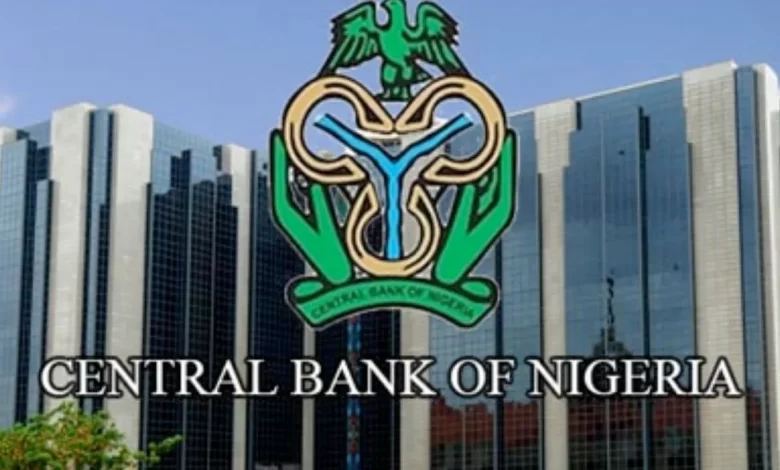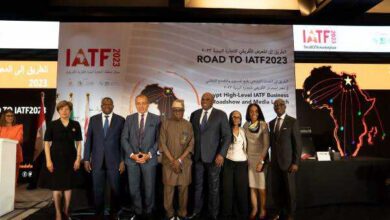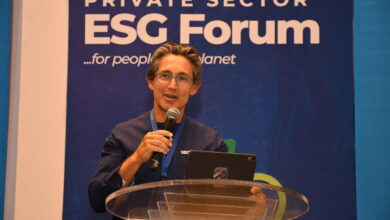
It is common knowledge that most Nigerian adults do not have bank accounts or engage in any financial relationship with commercial banks.
This realisation is partly responsible for the financial inclusion initiative of the Federal Government and Central Bank of Nigeria (CBN) in 2012, with the expectation that by 2020, the banks would have achieved financial inclusion of a higher percentage of Nigerian adults.
To examine why the policy had not recorded much success, STANMEG Communications, publishers of Oriental News Nigeria, assembled experts to review the policy.
A decade after the policy was initiated, financial experts and those for whom the policy was targeted, say the initiative had not achieved much of its desired goals, JOHNMARK UKOKO writes.
In the United States of America from which Nigeria copies most of its policies and programmes, over 90 per cent of the adult population are financially included in the banking system.
In the European countries, the figure is close to what is obtainable in the United States, as most of their adult populations have bank accounts and one insurance policy or the other.
Most of them also actively participate in capital market activities in addition to pension arrangements in their various countries, all of which are carried out with the aid of functional bank accounts.
However, in most African countries, only about 50 per cent of the adult populations are financially included, as their adult citizens have bank accounts or have one insurance policy or the other, as against Nigeria where majority of its adult population are usually not active in the country’s financial sector.
Research conducted by the Central Bank of Nigeria (CBN) in 2010, showed about 39.2 million or 46.3 per cent of the 84.7 million Nigerian adult population at that time were excluded from the nation’s financial system.
That meant that 45.5 million or about 53.7 per cent of the country’s 84.7 million people were included in the financial system. This realisation led the CBN to launch the county’s financial inclusion programme about a decade ago, precisely in 2012. To determine how far the country has gone in the policy.
The management of STANMEG Communications, publishers of Oriental News Nigeria, a leading online platform, recently brought together financial experts, artisans, traders, persons living with disabilities and others in Lagos to examine the issues and proffer solutions to the country’s slow progress in its determination to integrate a greater number of adults into the financial system.
During the event with the theme: Engaging With Critical Groups To Develop Effective Financial Inclusion Initiative, Chairman of the occasion and Chief Executive Officer (CEO) of Bank Customers Association of Nigeria (BCAN), Dr Uju Ogubunka, said the Federal Government and CBN’s financial inclusion programme was geared towards ensuring that no Nigerian was short-changed in its financial intermediation policies and economic development plans.
He disclosed that the government was concerned that a large percentage of its citizens were excluded financially, hence it set a target to change the narrative with a view to engaging more adults in the country’s financial system. Ogubunka, a former Registrar of the Chartered Institute of Bank ers of Nigeria (CIBN) and retired senior executive of a new generation bank, lamented that a decade after launching the policy, the number of financially excluded adults has increased.
“When the financial inclusion policy was unveiled in 2012, Nigerian adults were a little over 84 million, but sadly, the number of the unbanked population has also increased remarkably.
If such huge a population remain outside the financial system, the economy will not develop at a fast pace,” he said. He pointed out that financial inclusion begins with the opening of a bank account, which facilitates and factors the account holder towards benefiting from government’s financial support, as the account drives other transactions of the account holder.
“Also, there is the need to have insurance policy, investment accounts in the capital market, pension accounts and other life and businesses that enable transactions driven only by the financial system to be financially included,” he stressed. Findings of the CBN research had shown that about 39.2 million or 54.4 per cent of the financially excluded adults were females, meaning that 17.9 million were males.
On the other hand, males accounted for higher number and percentage of the financially included in the nation’s financial system. In his presentation, Managing Director of APT Securities and Funds Limited, Mallam Garba Kurfi, who was represented by Rotimi Olubi, said the government’s financial inclusion policy, if properly harnessed, will help to ensure that funds that would have been outside the financial sector find their way into the formal sector. He stressed that the huge number of people outside the financial sector meant that their funds were being kept in their homes instead of being channelled into the country’s financial system.
“Some of the people outside the financial sector have thriving businesses, but because they don’t bank accounts, can’t access bank financial credit facilities. And so, if they don’t have bank accounts, there is no way they can access bank credits. If they keep their cash at home, their businesses cannot grow beyond the ordinary level.
“If we don’t put our money in the banks, the economy will not grow. There are many financial products and services the financially excluded people can’t benefit from,” he stressed, stressing that if all the huge funds in the informal sector could find their way into the country’s financial sector, the nation’s economy will grow in leaps and bounds. On why the initiative had not achieved the desired results despite the Federal Government and CBN’s efforts to drive the financial inclusion faster, Executive Director of the Centre for Citizens with Disability (CCD), David Anyaele, said the apex bank and commercial banks should be blamed for the slow pace of the financial inclusion initiative.
Anyaele said the banks make it difficult for people with disability to access banking halls, adding that his members in wheelchairs were unable to access the banking halls because the banks’ entrances were too narrow. He added that his members with sight impairment and walk with iron rods could not go through the bank’s entrance doors, adding that his members, who managed to access the banking halls were usually treated with contempt by some bank officials.
“I lost my two arms to the Sierra Leone war. When I returned to Nigeria, I struggled to find money to buy artificial arms, before I could do that I went to the bank to open an account and because I couldn’t sign my signature, I was denied the opportunity.
“I pleaded with them to allow me thumbprint, but the bank refused. I went home very sad. I have to practise so many times before returning to the bank to open the account. Most of my members are subjected to one form of discrimination or the other on daily basis.
“The obstacles before the physically challenged people have kept many of us out of the banking halls,” Anyaele stated. He also berated the CBN and the banks for not being honest with persons with disability, adding that on several occasions, they heard that the government has intervention funds for people with disability, but whenever they approach banks to access it, the banks usually say there was nothing like that.
Anyaele pointed out that most of his members no longer want to save their money in the banks because of high inflation to the extent that if one keeps money in the bank, the money loses value within a month, adding that banks no longer pay interests on deposits, therefore, there are no incentives for savings.
Arguing that the building laws do not consider the physically challenged persons in the banks’ buildings or offices, he said in most countries of the world, buildings or offices that do not make provisions for easy entrance of people with disability were heavily sanctioned.
“The banks and other financial institutions don’t consider physically challenged persons in their design and buildings. Our situation is not our making and anyone can become one of us anytime. Our laws are not friendly to persons with disability,” he said.
On why the country’s financial inclusion was not growing fast as expected when the CBN launched the policy a decade ago, Chairperson of the Nigeria Association of Women Journalists (NAWOJ), Mrs Adeola Ekine, said women have been marginalised hence most of them are excluded from financial services. Ekine said most women in North and some other parts of the country are denied education, and as such they do not have jobs or money to open bank accounts, adding that even women, who are privileged to get some education on their graduation are asked to marry and bear children before they could go out to hunt for jobs, while their male counterparts must have gone far, The Trumpet gathered.
Stressing that the issues of financial inclusion would become a mirage in the country as long as women were not empowered, she maintained that employers also deny women jobs on the excuse that they either do not have experience or were above employment age.
Further lamenting the women condition, she asked: How can an uneducated woman have money to save in the bank? How will such women have money to achieve financial inclusion?
Convener of the conference and Editor of Oriental News Nigeria, Mrs Yemisi Izuora, said the idea of the conference was conceived after a painstaking study on the progress and prospects of financial inclusion in the country. Izuora disclosed that planning for the conference and the groundwork began about two years ago, adding that feedback generated from the grassroots prompted the organisation to host the event.
Read Also: Nigerians groan as prices of foodstuff continue to soar
“The conference was organised given that over the past couple of years, the Federal Government and stakeholders in the financial sector have had to deal with expanding financial services to large communities of underserved populations.
“We strongly believe and we are convinced that the conference will help to advance inclusive financial systems for the identified groups, including community-based people, artisans, low income groups, market men and women and persons with disabilities, among others, who undertake financial transactions in various locations, as well as displaced persons who were represented at the event,” she stated.
On why banks failed to open branches in rural areas to bring Nigerians resident in those areas and were even closing some branches at the community level, representative of the Nigerian Communication Commission (NCC) said the commission was spreading Internet facilities to remote parts of the country to enable Fintechs, Point of Sales (PoS) and bank agents to continue to serve their customers and Nigerians alike.
Respondents, who commended the STANMEG Communications and Oriental News Nigeria for organising the event, charged other media houses to emulate the organisation to embark on similar projects with a view to boosting the country’s economy.




